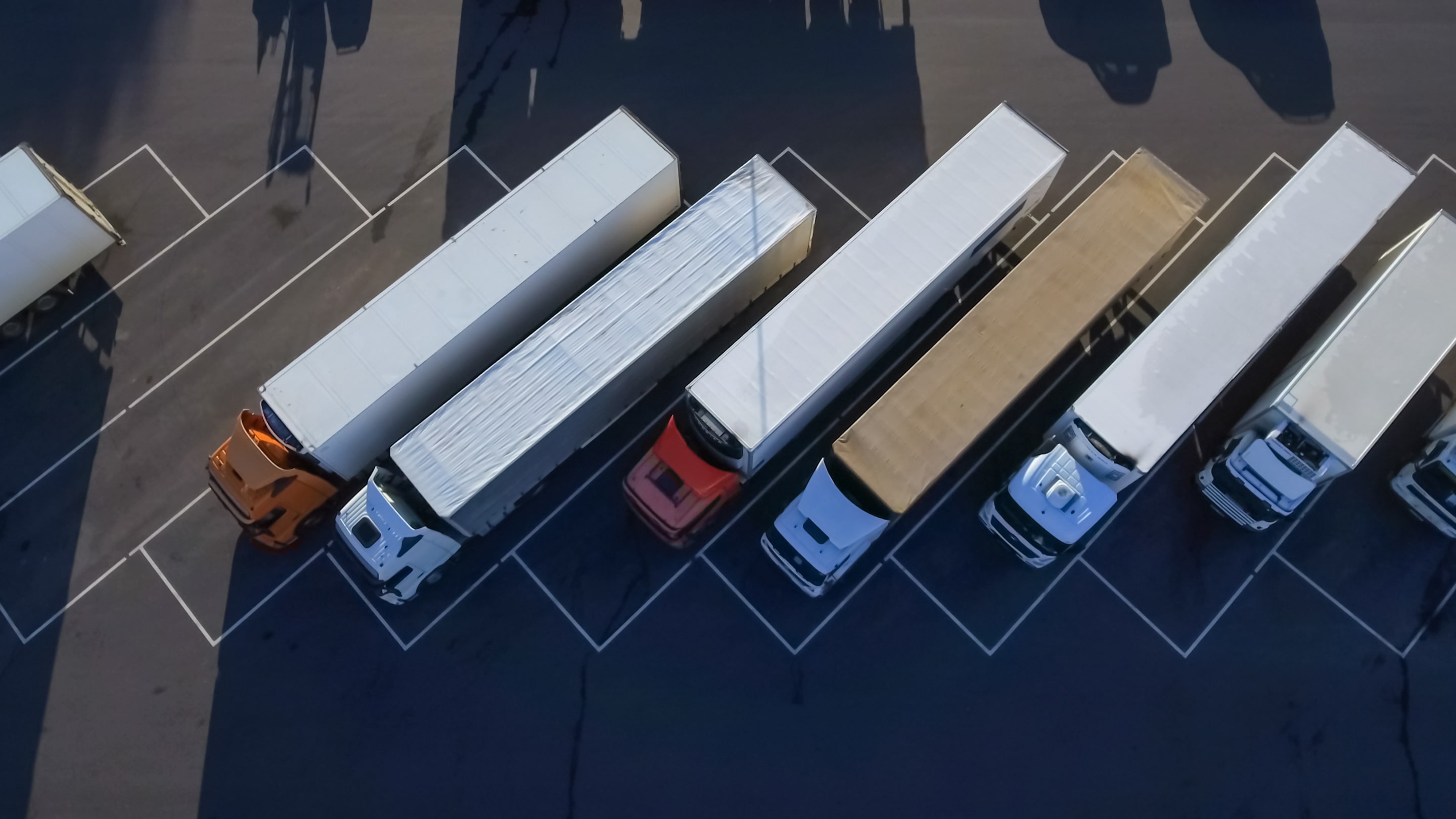
Guest
Rozwiązanie problemu niedoboru kierowców samochodów ciężarowych w Wielkiej Brytanii w latach 2024/2025
Utworzony: 16.08.2024
•
Aktualizacja: 10.10.2024
Niedobór kierowców pojazdów ciężarowych w Wielkiej Brytanii jest złożonym i wieloaspektowym wyzwaniem, mającym daleko idące konsekwencje dla krajowej gospodarki i łańcuchów dostaw. Jednak wspólne wysiłki rządu, przemysłu i zainteresowanych stron zaczęły przynosić pozytywne rezultaty, co sugeruje, że sytuacja może się zmieniać.
W Wielkiej Brytanii, w perspektywie 2024 i 2025 roku, ciągłe zaangażowanie w rozwiązanie problemu niedoboru kierowców, w połączeniu z koncentracją na przyciąganiu i zatrzymywaniu utalentowanych osób, będzie miało kluczowe znaczenie dla zapewnienia długoterminowej odporności i dobrobytu sektora transportowego.
Głębokość kryzysu
Niedobór kierowców samochodów ciężarowych w Wielkiej Brytanii jest coraz większym problemem, a sytuacja osiągnie punkt krytyczny w 2021 roku. Według raportów branżowych, w szczytowym momencie kryzysu w kraju brakowało około 100 000 kierowców samochodów ciężarowych. Liczba ta stanowiła znaczny wzrost w stosunku do 59 000 kierowców zgłoszonych w 2019 r., co podkreśla szybkie pogarszanie się sytuacji.
Czynniki przyczyniające się do tego niedoboru były wielopłaszczyznowe, w tym wpływ pandemii COVID-19, następstwa Brexitu oraz zmiany w przepisach podatkowych IR35, które miały wpływ na kierowców samochodów ciężarowych zatrudnionych przez agencje na zasadzie wykonawcy. Zakłócenia te doprowadziły do odejścia z branży wielu doświadczonych kierowców, podczas gdy na rynek nie wchodziło wystarczająco dużo nowych talentów, aby wypełnić pustkę.

Interwencja rządu i wysiłki branży
Uznając powagę sytuacji, rząd Wielkiej Brytanii i zainteresowane strony z branży podjęły zdecydowane kroki w celu rozwiązania problemu niedoboru kierowców samochodów ciężarowych. Departament Transportu odnotował znaczną poprawę, a odsetek wolnych miejsc pracy dla kierowców samochodów ciężarowych zgłoszonych przez firmy transportowe spadł z 43% w 4. kwartale 2021 r. do 23% w 3. kwartale 2023 r.
Jednym z kluczowych wdrożonych środków było zwiększenie finansowania w celu przyciągnięcia i przeszkolenia nowych kierowców samochodów ciężarowych. Rząd przyspieszył również proces uzyskiwania licencji kierowców pojazdów ciężarowych i zainwestował 8 milionów funtów w poprawę jakości miejsc odpoczynku dla pojazdów ciężarowych, rozwiązując długotrwałą kwestię złych warunków pracy dla kierowców.
SNAP pomógł wielu parkom ciężarówek w Wielkiej Brytanii w tworzeniu wniosków o dofinansowanie rządowe w celu ulepszenia ich obiektów. Dowiedz się więcej o parkach dla ciężarówek należących do sieci SNAP.
Rozwiązanie problemu starzejącej się siły roboczej i przyciąganie młodszych talentów
Jednym z utrzymujących się wyzwań w branży kierowców samochodów ciężarowych jest starzejąca się siła robocza, przy średniej wieku kierowców wynoszącej 48 lat. Branża ma trudności z przyciągnięciem młodszych talentów, ponieważ postrzeganie złych warunków pracy, średnich płac i mało inspirującej ścieżki kariery zniechęciło wielu do rozważenia kariery kierowcy ciężarówki.
Aby temu zaradzić, rząd rozpoczął niedawno konsultacje w sprawie obniżenia minimalnego wieku kierowców autobusów i autokarów, potencjalnie otwierając młodszym osobom więcej możliwości wejścia do sektora transportu. Posunięcie to, w połączeniu z wysiłkami na rzecz poprawy udogodnień dla kierowców i warunków pracy, może pomóc uczynić branżę bardziej atrakcyjną dla następnego pokolenia pracowników.
Zobacz mapę parkingów dla ciężarówek, stacji mycia ciężarówek i miejsc noclegowych w różnych regionach objętych siecią SNAP.

Pokonywanie przeszkód regulacyjnych i elastyczność
Kolejnym czynnikiem przyczyniającym się do niedoboru kierowców samochodów ciężarowych są przeszkody regulacyjne i biurokracja, z którymi muszą się zmierzyć nowi kierowcy wchodzący do branży. Proces uzyskiwania niezbędnych licencji i certyfikatów może być czasochłonny i kosztowny, co odstrasza potencjalnych kandydatów.
Aby temu zaradzić, interesariusze z branży opowiadają się za bardziej elastycznymi procedurami szkolenia i testowania, podobnymi do podejścia przyjętego przez firmy autobusowe. Usprawnienie procesu i uczynienie go bardziej dostępnym ma na celu zwiększenie liczby wykwalifikowanych kierowców wchodzących na rynek.
Wpływ Brexitu i COVID-19
Niedobór kierowców samochodów ciężarowych w Wielkiej Brytanii został dodatkowo skomplikowany w wyniku Brexitu i zakłóceń spowodowanych pandemią COVID-19. Utrata kierowców z UE, którzy wcześniej stanowili znaczną część brytyjskiej siły roboczej, była znaczącym ciosem.
Dodatkowo, wpływ pandemii na szkolenia i testy spowodował zaległości nowych kierowców wchodzących na rynek. W miarę ożywienia gospodarczego zwiększony popyt na towary i usługi jeszcze bardziej obciążył i tak już napięty sektor transportu.

Współpraca i innowacje
Rozwiązanie problemu niedoboru kierowców samochodów ciężarowych będzie wymagało współpracy między rządem, interesariuszami z branży i instytucjami edukacyjnymi. Pracując razem, mogą oni opracować kompleksowe rozwiązania, które zajmą się podstawowymi przyczynami problemu i stworzą bardziej zrównoważony i odporny system transportowy.
Przyjęcie innowacyjnego podejścia, takiego jak wykorzystanie technologii do optymalizacji logistyki i poprawy wydajności kierowców, może również odegrać kluczową rolę w łagodzeniu skutków niedoboru kierowców. Inwestycje w infrastrukturę, programy szkoleniowe i inicjatywy ukierunkowane na kierowców mogą pomóc w budowaniu silniejszej, bardziej zróżnicowanej i odpornej siły roboczej.
Droga przed nami
Podczas gdy Wielka Brytania porusza się w zmieniającym się krajobrazie niedoboru kierowców samochodów ciężarowych, jasne jest, że rozwiązanie będzie wymagało wieloaspektowego podejścia. Ciągłe wsparcie rządowe, współpraca branżowa oraz zaangażowanie w przyciąganie i zatrzymywanie utalentowanych kierowców będą miały zasadnicze znaczenie dla zapewnienia odporności krajowej sieci transportowej.
Chociaż kryzys może nie zostać w pełni zażegnany w najbliższej przyszłości, podjęte do tej pory kroki dają promyk nadziei. Koncentrując się na innowacyjności, elastyczności i inkluzywności, Wielka Brytania może dążyć do przyszłości, w której sektor transportu będzie w stanie sprostać rosnącym wymaganiom gospodarki i potrzebom obywateli.


